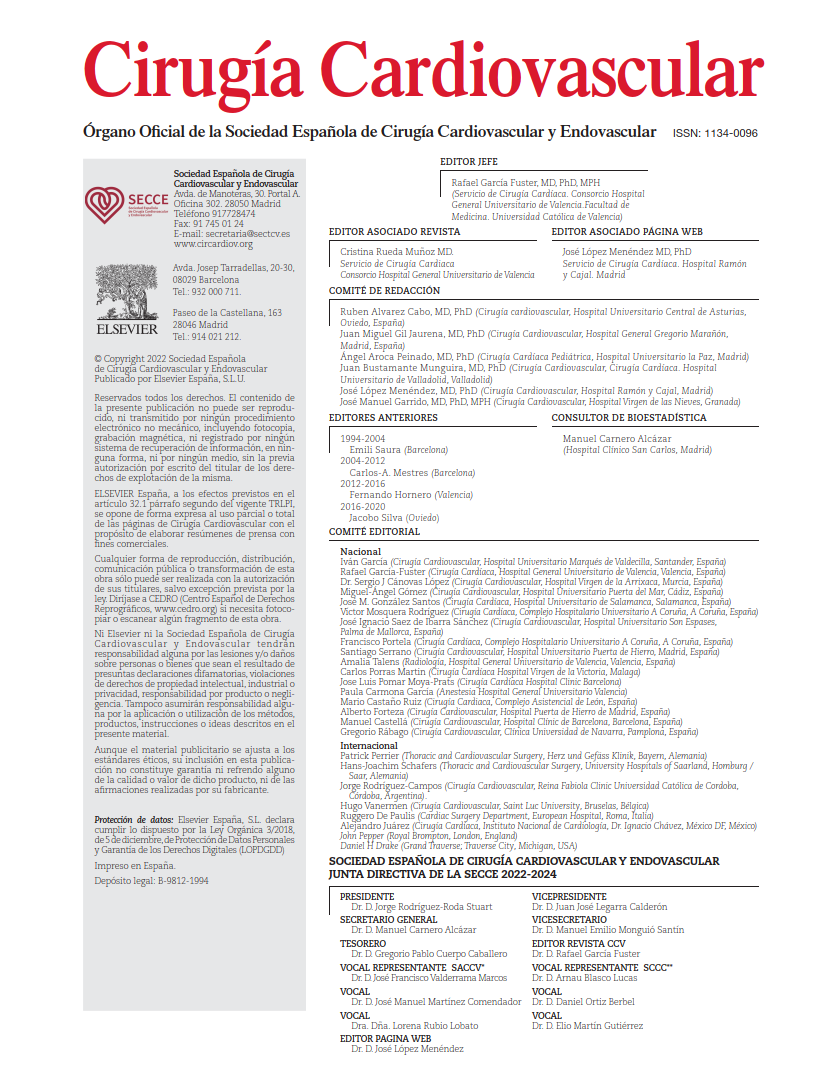
I, robot, in coronary surgery
Initial experience from a chinese center in minimally invasive multivessel coronary revascularization combining robotic assistance and a minimally invasive surgical approach
Clinical practice guidelines for heroic surgery: consensus on mechanical complications of myocardial infarction
AATS consensus document on the surgical management of mechanical complications following acute myocardial infarction.
Bentall “mattress-type”: when a good technique can still be improved
A new CTSNet video presents a simple yet highly effective variant of the Bentall–de Bono operation: a double proximal mattress-type suture that enhances sealing and security at the aortoventricular junction without altering the remainder of the procedure.
Percutaneous treatment of aortic stenosis in bicuspid valves: two converging pathways
This multicenter observational study evaluated differences in clinically relevant outcomes between balloon-expandable bioprostheses and self-expandable bioprostheses in the setting of bicuspid aortic valve (BAV) stenosis.
Midterm survival, clinical, and hemodynamic outcomes of the on-x mechanical mitral prosthesis
This analysis of secondary outcomes (survival, functional class, and hemodynamic parameters) compares two types of On-X® mechanical mitral valves (Standard and Conform-X) using data from the randomized clinical trial PROACT Mitral, with a mean follow-up of 5 years.
When spinal cord protection becomes a threat: dismantling the dogma of cerebrospinal fluid drainage in open aortic surgery
This retrospective multicenter observational study—the largest conducted to date—challenges the long-standing assumption that cerebrospinal fluid (CSF) drainage is inherently protective against spinal cord injury during open repair of descending thoracic aortic aneurysms (DTAA) and thoracoabdominal aortic aneurysms (TAAA). The investigation focuses on the incidence of paraplegia or paresis persisting beyond 24 hours as the primary clinical outcomes.
A novel therapeutic approach for right-sided endocarditis: percutaneous mechanical aspiration shows promising results
Multicenter CLEAR-IE registry outcomes on percutaneous mechanical aspiration of right-sided endocarditic vegetations.
Protective bypass in acute type A dissection with coronary ostial involvement
A review addressing current strategies for managing coronary ostial involvement in acute type A aortic dissection (ATAAD), exploring whether supplementing conventional ostial repair with a protective coronary bypass could enhance myocardial perfusion during the early postoperative phase and potentially reduce severe adverse events.

